Petroleum power, prices and pollution
- Published
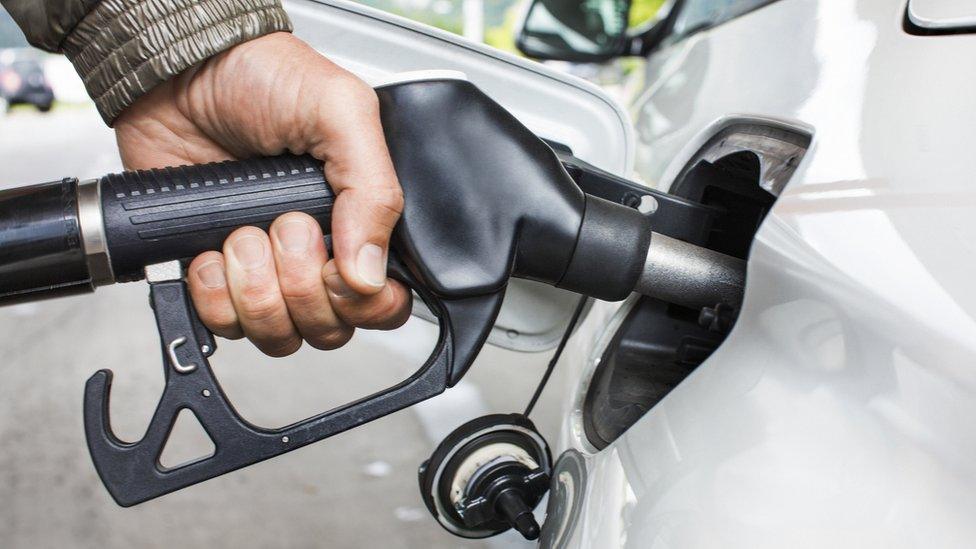
An attempt by oil importers to force down the price has not had much impact, and can only ever be short term - handing power to exporters when they meet next week
The politics and economics of energy is also putting further upward pressure on gas prices, as a reminder of a big British price hike next spring
Supply shortages make the case for more drilling, according to the UK industry regulator, but there's also a warning to drillers that public support could run dry
As Americans head home for Thanksgiving on crowded interstates, the cost of filling up that vast SUV is hurting. And President Joe Biden feels their pain.
He has failed to persuade the Organisation of Oil Exporting Countries (OPEC), along with Russia (OPEC+), to respond to rising demand as the world economy gets back into growth post-pandemic.
They only narrowly got to an agreement at their last meeting. Even if they weren't enjoying the higher revenue and discomfort for political adversaries around the world, exporters cannot turn the taps on or off as fast as the American political calendar requires it.
So the Biden administration co-ordinated action by the big oil importers on Tuesday, boosting supply of crude oil by saying it will release it into the market from strategic stocks.
On a given level of demand, that should reduce its price.
It didn't go to plan. The market responded by pushing the spot price up by nearly $3 a barrel, so that it currently trades above $82.
Too much too late
It seems that oil traders had already priced in some release of stocks, helping the price to drift below $80 a barrel from highs earlier in autumn.
They're making assumptions on the future path of demand, further complicated by new waves of Covid infection and potential social and economic restrictions.
The schedule on which the stocks get released was unclear. The US may simply bring forward sale of stock rather than adding to production.
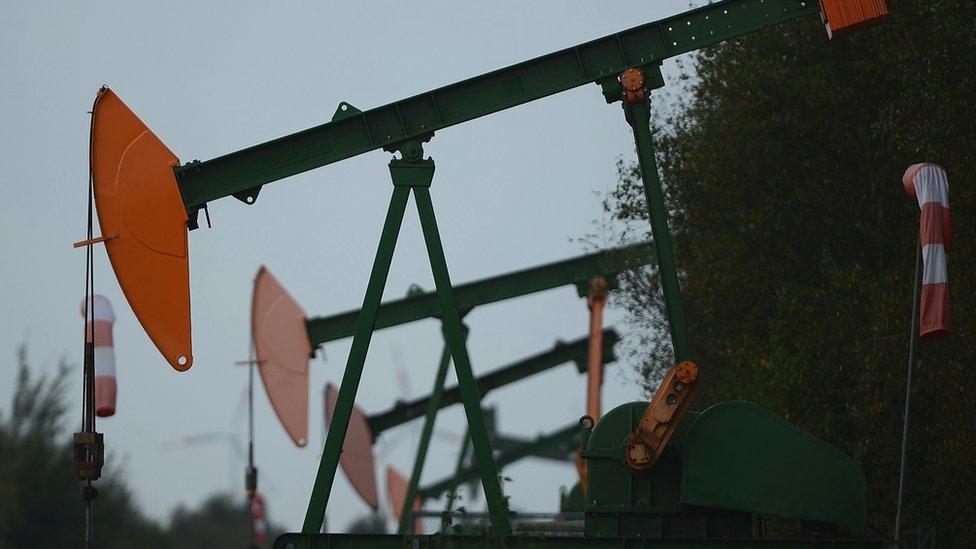
The US released 50 million barrels of oil from its reserves in an attempt to bring down soaring energy and petrol prices
Others including China and India, while willing to show support for Biden's initiative, don't hold a Strategic Petroleum Reserve on anything like the scale of the US one.
The UK joined in by asking oil producers to release roughly a day's UK production into the market.
Analysts expected things to ease by around February.
According to Louise Dickson, an oil market analyst with Rystad Energy, said: "The release may be a case of too much too late, as the oil market was tightest and needed supply relief in September".
Sweet and sour
For students of economics, this an interesting example of market power.
Even the world's biggest economies and biggest oil consumers cannot co-ordinate their use of stocks to thwart an export cartel and determine the price.
With an OPEC+ meeting scheduled for next week, there's a real prospect the cartel could match the extra supply of crude oil by cutting exports.
That would leave importers in little doubt about who holds the power. While importers with stocks can afford to make one big gesture, exporters have much, much deeper reserves with which to sustain their market power.
There are further complications. Reducing the price of crude oil is no guarantee that it will be refined and made available to consumers in the forecourt.
And the high price of natural gas for heating is shifting the oil market in favour of the sweet, light variety that can be refined for that by-product, with less demand for the sour variety that usually dominates trading.
Fused Bulb
And that brings us to the problems of the natural gas industry.
With tensions rising between Russia and Ukraine, linked to German moves to delay approval of the new Nordstream pipeline that Russia wants to open, geopolitics has again pushed up the spot price, by more than 15% in two days.

Home energy costs have come sharply into focus as wholesale gas prices have rocketed in recent months
It had been drifting down from early October highs, though remained far above levels earlier this year.
For British bill-payers, who are protected for now by a price cap on household energy, the new upward trend is another reminder of the pain that will hit them when that cap is raised.
That's currently scheduled for next April, but such is the pressure on energy suppliers paying wholesale rates while charging their customers far less, the frequency of reviewing the price cap could be increased as well.
Without that review coming forward, this week's move into special administration by Bulb Energy was the one that the industry feared and also expected.
As the seventh biggest supplier in Britain, it is too big for other companies to absorb, so it will take UK government action and perhaps a lot of public funds to keep it going.
The cost of recouping that loss is also likely to land on bill-payers.
Social licence
All this seems a long way from the COP26 summit, when President Biden and many others were agreeing that oil and gas have to shrink massively, and not talking about supplying the market with more crude oil to help keep prices down.
It's also a long way also from the pressure on the UK government to stop consent from new drilling and enhanced production.
Under short-term pressure, political leaders are likely to favour lower prices over lower emissions.
Ahead of the decision on whether to green light the Cambo gas field, west of Shetland, another significant voice is calling for continued drilling by the oil and gas industry in UK waters.

A decision over the future of the Cambo oil field has become a huge political issue
Tim Eggar used to be energy minister in the Conservative government of the 1990s. He is now chairman of the Oil and Gas Authority (OGA).
At a conference in London on Wednesday, he had two key messages. Following petrol shortages and with gas prices soaring: "Security of supply is back in vogue".
The need for oil and gas to fuel transport, industry and heating will remain "for the foreseeable future," he said.
And so, he argued, it's better to produce it in UK waters, with lower emissions than arise from transporting it from other countries.
'Smash these targets'
But in a speech to the industry, there was another warning message worth noting - that the transition deal struck between government and industry, to reduce its carbon footprint very rapidly, is one that companies will have to adhere to.
"Industry's social licence to operate is barely holding," observed Mr Eggar. "Failure to deliver the transition deal is not an option.
"These emissions targets should be viewed as the absolute minimum. Industry should look to smash these targets, not just meet them."
The OGA regulator will "hold industry to account on their side of the bargain by very closely tracking, monitoring and reporting on progress".
- Published22 November 2021

- Published15 November 2021
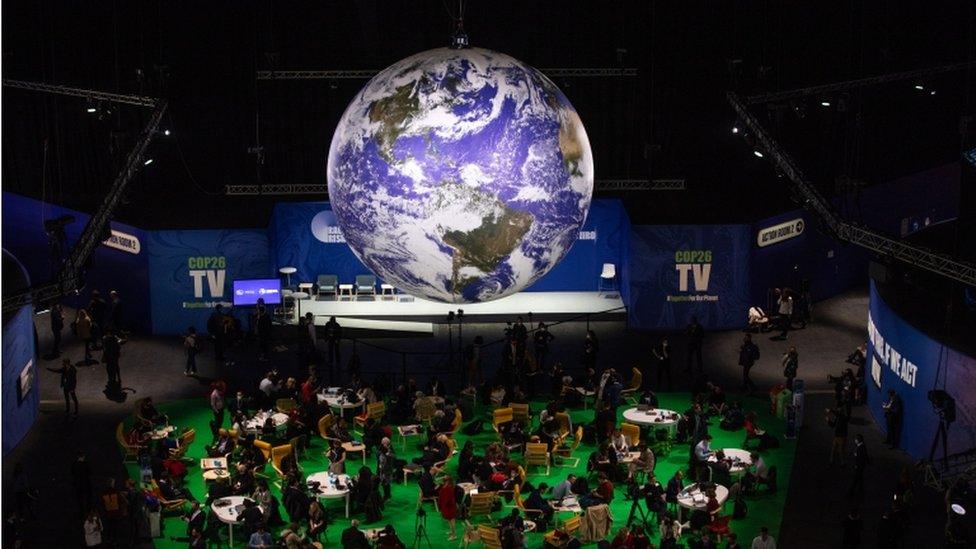
- Published15 November 2021
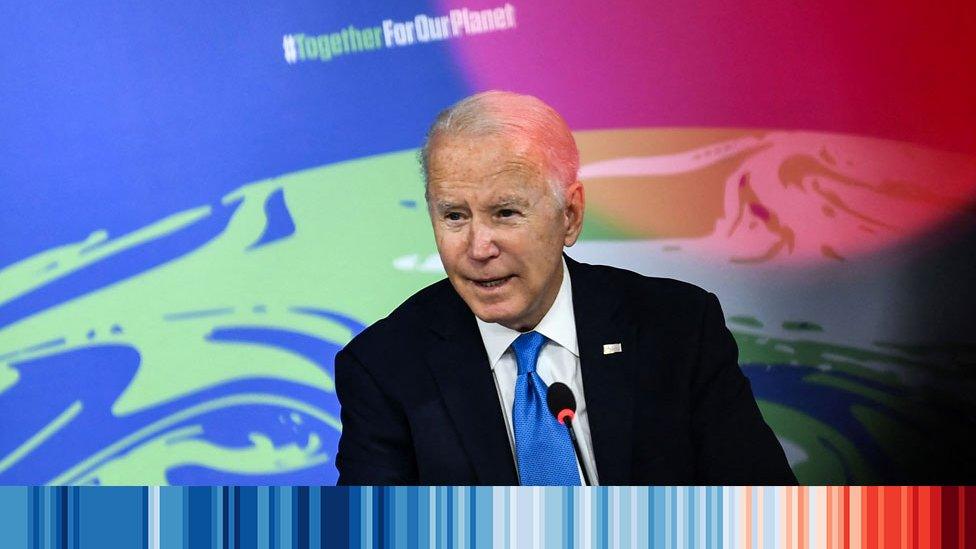
- Published23 November 2021
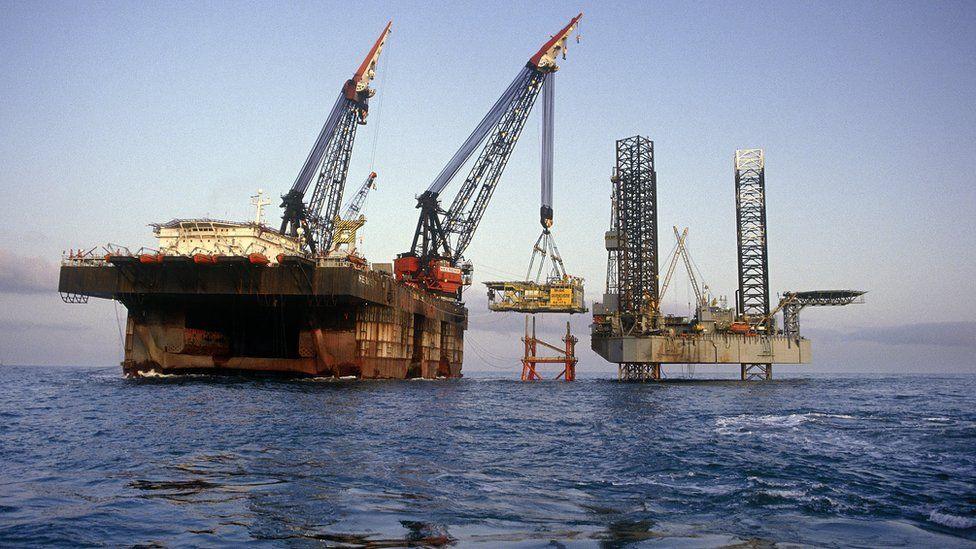
- Published1 November 2021

